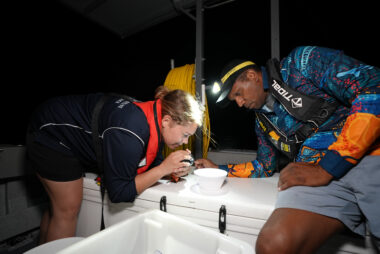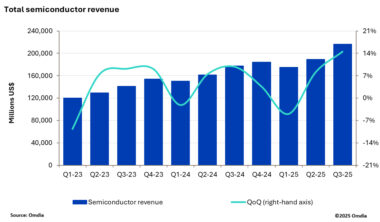An international study led by biologists from Monash University and the University of Tuscia has revealed how long-term exposure to pharmaceutical pollutants is dramatically altering fish behaviour, life history and reproductive traits.
The five-year investigation, focusing on wild-caught guppies exposed to the widely prescribed antidepressant fluoxetine (Prozac), highlights the profound and interconnected effects of this pollutant on aquatic ecosystems.
The study, led by Dr Upama Aich from the Monash University School of Biological Sciences and Assistant Professor Giovanni Polverino from the University of Tuscia, is published today in the Journal of Animal Ecology.
Pharmaceutical pollutants, especially antidepressants like fluoxetine, have become a pervasive issue in water bodies worldwide. These pollutants, often introduced through wastewater discharge, persist at low levels in rivers, lakes and oceans.
Despite their widespread presence, the full impact of these chemicals on aquatic wildlife, particularly on behaviour and reproductive success, has remained unclear.
“Even at low concentrations, fluoxetine altered the guppies’ body condition and increased the size of their gonopodium –a modified anal fin used as a reproductive organ in males – while simultaneously reducing sperm velocity, an essential factor for reproductive success,” said Dr Aich.
“Fluoxetine exposure also significantly reduced the behavioural plasticity of guppies, leading to a lower capacity of the individuals to adjust their own activity and risk-taking behaviours across contexts,” said Assistant Professor Giovanni Polverino.
To explore the effects of antidepressant pollution, the research team exposed guppies to three environmentally relevant concentrations of fluoxetine over multiple generations. The team then meticulously tested fish behaviour, physical condition and reproductive health after five years of pollutant exposure.
Male guppies were the focus due to their heightened sensitivity to environmental shifts, particularly in traits tied to behaviour, body condition and reproduction. Researchers measured key life-history traits such as body condition, colouration, and gonopodium size, along with critical sperm traits including vitality, number and velocity.
Fluoxetine exposure disrupted the natural correlations between key traits. For instance, the expected link between activity levels and body condition, and between gonopodium size and sperm vitality, was altered. This disruption indicates that the pollutant is interfering with the natural trade-offs fish make between survival and reproduction.
Professor Bob Wong, from the Monash University School of Biological Sciences and senior author, said the study reveals the extensive and nuanced impacts of pharmaceutical pollutants on aquatic life.
“The disruption of behavioural plasticity and the altered correlations between critical traits could undermine fish populations’ ability to adapt to environmental challenges, threatening their long-term survival,” said Professor Wong.
These findings emphasise the need for a more comprehensive approach to evaluating the ecological and evolutionary consequences of pharmaceutical pollution. As human activities continue to introduce new pollutants into the environment, understanding their effects on wildlife is crucial for preserving biodiversity and ensuring the health of ecosystems.
This research offers vital insights into how chronic exposure to common pharmaceutical pollutants like fluoxetine can fundamentally alter the traits that fish rely on for survival and reproduction. The findings highlight the need to address pharmaceutical pollution and implement stricter regulations to protect aquatic life from this threat.
Media enquiries:
Silvia Dropulich
Marketing, Media & Communications Manager, Monash Science
T: +61 3 9902 4513 M: +61 435 138 743
Email: [email protected]
Hande Cater, Media and Communications Manager, Monash University
M: 0456 428 906
E: [email protected]



